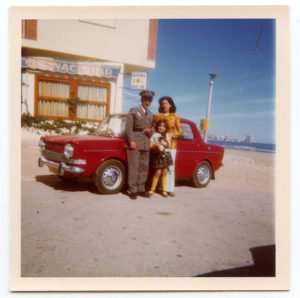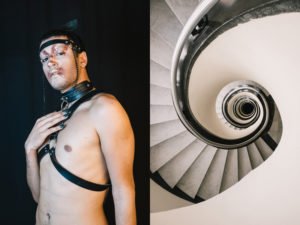
March 2020
Because of the current health context, seminars and residential studies have been cancelled.
SEMINARS
Seminar “Self-organization of biological systems” organized by Thomas Lecuit
From March 2 to 7, this seminar will bring together 20 scientists coming from different areas of cell and developmental biology, and biophysics to nurture interdisciplinary discussions on how living systems self-organize. Living systems exhibit unique properties of self-organization across spatial and temporal scales. Such dynamic organizations emerge from interactions between components, whether it be molecules, cells or organisms. These interactions are diverse, namely chemical, biochemical and mechanical yet function together in any given system. The chief ambition of the conference is to identify general principles underlying the dynamical organization accross scales.
Seminar “Around the War”, organized by Pierre Morel — CANCELLED
From March 18 to 21, this seminar will gather fifteen high-level participants, researchers and practitioners. The main topic of interest is the hybrid threats that characterize contemporary conflicts. “Hybrid warfare” combines military and non-military actions, conventional and unconventional means, emanating from both state and non-state actors. On the doctrinal level, the concept of hybrid war raises a definition problem. However, it can prove useful in characterizing the evolution of the strategic context. How can it help us understand the new faces of war, but also the difficulties in making and consolidating peace?
RESIDENTIAL STUDIES
From 16 to 22 March – Cédric Moreau de Bellaing : “A sociology of legitimate violence” — CANCELLED
The expression “legitimate violence” is not easy to sociologically investigate. The notion of legitimacy has been the topic of different works which have highlighted its normative and constructed character. In these researches, legitimacy tends to be reduced to a justification at the service of force, coming to conceal power relations that should be brought to light. These works, of constructivist inspiration, refer the political and moral debates on the legitimacy of violence, sometimes to scholastic quarrels that must be broken through, sometimes to categories that mobilize the actors to describe the social world, and of which it must be undone to elucidate the social configurations which give them authority. This is indeed a major concern of the actors confronted with the question: how to distinguish legitimate violence from illegitimate violence?
From 24 March to 4 April – Sophie Lalanne : “The novel, the city and the Empire” — CANCELLED
The first Greek novels, composed by Chariton, Xenophon of Ephesus, Longus, Achilles Tatius, Heliodorus, offer an abundant source of information which covers approximately two hundred years of the history of the Roman Empire, c. 50 to c. 250 AD In a fictional universe crossed by a multitude of characters, novelists paint an unparalleled painting of Greek customs and offer a relatively precise description of the world of civic and village societies. This residential study is based on a triptych construction linking the Romanesque, the city and the Empire.
AUTHOR’S RESIDENCY
Clément Bénech
In March, we welcome Clément Benech. His new novel will extend his formal research on the incorporation of visual elements in the romantic space, and will cover such diverse notions as belonging, umbrellas, education and heart prostheses.
THE PHOTOGRAPHY PRIZE
This year the 3 laureates selected by the jury which met from January 24 to 26, 2020 are:

Sylvie Hugues
At 12, Sylvie Hugues’ life changed. She then lives in Cullera, a village near Valencia, in Spain. Returning from a school trip, she is told that her mother has just been murdered by her second husband, a Guardia Civil police officer. She must then suddenly leave Spain, and the paradise of childhood, to find in the Parisian suburbs a father who does not know how to love her as well as an aggressive stepmother. To the grief of mourning is added that of exile. From this period of her life, she has only kept a family album, some yellowed papers and the court judgment. Her father-in-law was only given a two years prison sentence. “Passionate crime” was the reason given then … Today we would rather talk about woman’s murder. Her project “El Pueblo” aims at building a book of texts and photographs to exorcise the demons of the past.

M’Hammed Kilito
From a selection of portraits of young people who take their destinies in hand with the courage to choose their own realities, M’Hammed Kilito conducts an investigation on the choice of a personal identity of Moroccan youth, who often pushes far the limits of the society. Whether through their
creative activities, their appearance or their sexuality, they convey the image of a young, awakening, changing Morocco, claiming the right to be different, and celebrating diversity. On a daily basis these young people challenge the conservative and traditional standards of Moroccan society. They cultivate their private oasis despite the obstacles they hit in a country which they say is not progressing at the same pace as them.
Jean-François Spricigo
 From reality and legends linked to the figure of the wolf, Jean-François Spricigo’s project aims to deepen the relationship with them, what they symbolize and what they embody, to provide a more soothing representation on the necessary cohabitation between Man and animal. The wolf crystallizes for him a certain duality in Man, between his wild part (the wolf) and his home lover part, domestic in a way (the dog). To extend the metaphor, the temperament of “follower” is qualified as “sheep”, what a disturbing semantic game then to realize that the wolf represents the threat of this blindness, while the dog protects – and therefore prevents – the herd from meeting the lucidity of freedom. Two sides of the same coin.
From reality and legends linked to the figure of the wolf, Jean-François Spricigo’s project aims to deepen the relationship with them, what they symbolize and what they embody, to provide a more soothing representation on the necessary cohabitation between Man and animal. The wolf crystallizes for him a certain duality in Man, between his wild part (the wolf) and his home lover part, domestic in a way (the dog). To extend the metaphor, the temperament of “follower” is qualified as “sheep”, what a disturbing semantic game then to realize that the wolf represents the threat of this blindness, while the dog protects – and therefore prevents – the herd from meeting the lucidity of freedom. Two sides of the same coin.
